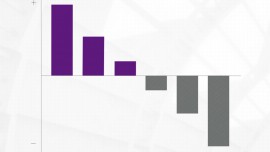Direct Indexing Investing Strategies
Natixis Investment Managers Solutions Direct Indexing provides fully customizable SMAs that seek to track an index before taxes and outperform it after taxes. These separately managed account portfolios can be customized for specific tax or other investment strategies.
To learn more and see case studies, download Direct Indexing: A Smarter Way to Index.
Download Presentation This email address is being protected from spambots. You need JavaScript enabled to view it.
Tax-Efficient Investing in Separately Managed Accounts (SMAs)
Why Direct Indexing – 5 Investor Applications

Maximize Tax Efficient Investing
Accounts use active tax loss harvesting, selling securities that have lost value to offset taxes on capital gains.
Transition Investment Accounts
Accounts can accept securities in-kind to minimize the tax consequences of moving assets to a new broker or firm.
Unwind Concentrated Positions
Accounts can accommodate existing equity positions, utilizing investment strategies that involve selling shares gradually to minimize capital gain taxes.
Customize A Portfolio
Portfolios, guided by active investment management, can prioritize or exclude specific sectors or securities to align with investor values or diversification goals.
Offset Future
Capital Gains
Investment losses accrued can be carried forward to offset capital gains in future years.
Direct Indexing SMAs Are the Most Tax-Efficient Way to Index
| Index Mutual Fund | Index ETF | Direct Indexing SMA | |
|---|---|---|---|
| Track Index Pre-Tax | ✔ | ✔ | ✔ |
| Dividend Tax | ✔ | ✔ | ✔ |
| Capital Losses to Offset Gains | ✘ | ✘ | ✔ |
| Actively Tax Managed | ✘ | ✘ | ✔ |
| High-Net-Worth Focused | ✘ | ✘ | ✔ |
| Fully Customizable | ✘ | ✘ | ✔ |
Specialized Investment Portfolios

Tax-Managed
Equity Indexing

In many cases, taxes have a greater impact on bottom line investment return than fees. Our portfolios are actively managed for tax efficient investing using a proprietary stratified sampling process that prioritizes tax loss harvesting over tracking error. This approach aims to minimize taxable capital gains, all to enhance overall after-tax returns for investors.


Sustainable/
ESG Indexing

Our proprietary methodology can apply environmental, social and governance (ESG) factors to create personalized indexes. Positive screening favors stocks with positive ESG ratings or best-in-class within sector. Negative screening excludes specific securities or sectors based on an investor's preferences.


Racial Equity
Indexing

Designed to track the S&P 500® index reasonably closely pre-tax, but with a deliberate focus on racial equity and justice. Invests in companies that are leaders in diversity, equity and inclusion and avoids companies that cause, contribute to, exploit or profit from racial injustice.


Managed ETF
Portfolios

Broad, strategically allocated ETF portfolios offer proactive equity tax loss harvesting and rebalancing. Comprehensive services focus on duration management in the fixed income allocation. Conservative, Moderate, Aggressive and Global Equity portfolios. Conservative and Aggressive income portfolios.

Investor Applications and Education for Direct Indexing
Want to Learn More?
Give us a call or send us an email. We'll be in touch soon to discuss our direct indexing strategies.
Phone 800‐862‐4863
Email This email address is being protected from spambots. You need JavaScript enabled to view it.
Capital gain is a rise in the value of a capital asset (investment or real estate) that gives it a higher worth than the purchase price.
A portfolio tilt is an investment strategy that overweights a particular investment style.
Natixis Advisors, LLC does not provide tax advice. Please consult with your financial advisor or tax professional.
Investing involves risk, including the risk of loss.
Sustainable investing focuses on investments in companies that relate to certain sustainable development themes and demonstrate adherence to environmental, social and governance (ESG) practices; therefore a portfolio’s universe of investments may be reduced. It may sell a security when it could be disadvantageous to do so or forgo opportunities in certain companies, industries, sectors or countries. This could have a negative impact on performance depending on whether such investments are in or out of favor.
Please do not send personal information, such as Social Security number, account numbers or transaction information. Email is not a secure method of communication.
Do not send complaints to the Funds or the Fund's Distributor via this portal. Any written complaints concerning the Natixis or Loomis Sayles Funds should be directed to Natixis/Loomis Sayles Funds, 2000 Crown Colony Drive, Quincy, MA 02169, or by telephone 800-225-5478. Written complaints regarding the WCM or Vaughan Nelson Funds should be directed to WCM/Vaughan Nelson Funds, 235 West Galena Street, Milwaukee, WI 53212 or by telephone 888-988-9801. Written complaints regarding the Fund's distributor should be directed to Natixis Distribution, LLC., Attn: Chief Compliance Officer, 888 Boylston Street, Boston, MA 02199 or call us at 617-449-2828.
1617079.14.1










